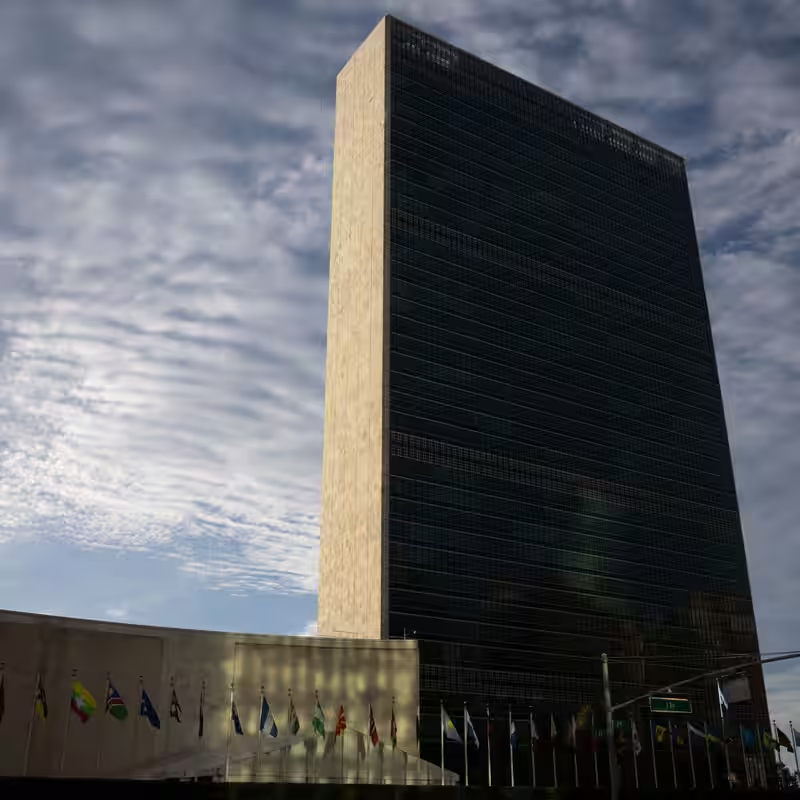Table of Contents
- Emergency U.N. Summons Over Caribbean Strikes
- What Happened in the Caribbean?
- Venezuela’s Accusations and U.S. Defense
- Global Reactions at the Security Council
- Why This Meeting Was So Unusual
- What Happens Next?
- Sources
Emergency U.N. Summons Over Caribbean Strikes
The United Nations Security Council convened an emergency session on Friday, October 10, 2025, to address a rapidly escalating crisis: U.S. military strikes on vessels near Venezuela that left multiple people dead. The rare meeting—spearheaded by Venezuela with strong backing from Russia and China—marks one of the few times in recent history the Council has been called to discuss direct U.S. military action in Latin America .
At the heart of the dispute are a series of deadly U.S. operations in the southern Caribbean, which Washington claims targeted drug-smuggling networks operating out of Venezuelan waters. But Caracas insists the boats were civilian fishing vessels, and the strikes constitute an act of aggression.
What Happened in the Caribbean?
According to U.S. Southern Command, American forces conducted multiple interdiction operations between September and early October 2025, resulting in the destruction of several boats allegedly linked to narcotics trafficking. Official reports cite 11 killed in early September, followed by additional strikes on October 3 that claimed four more lives .
Venezuelan President Nicolás Maduro condemned the attacks as “unprovoked acts of war,” claiming the vessels were unarmed and carried no drugs. Footage released by Venezuela’s state media shows charred hulls and grieving families in coastal communities.
Venezuela’s Accusations and U.S. Defense
During the Security Council session, Venezuela’s ambassador accused the United States of violating international law and sovereignty. “These are not traffickers—they are fishermen. The U.S. is using the drug war as a pretext for military escalation,” he declared .
In response, the U.S. representative stood firm, stating the operations were part of a long-standing counter-narcotics mission authorized under international maritime law. “We have credible intelligence linking these vessels to transnational criminal organizations moving multi-ton shipments of cocaine,” the U.S. envoy said.
Global Reactions at the Security Council
The Council’s response was deeply divided. Russia and China openly supported Venezuela’s call for the meeting, criticizing what they described as “unilateral militarism” by Washington .
Meanwhile, the United Kingdom urged restraint from all parties but stopped short of condemning the U.S. “We stand in solidarity with the people of Venezuela,” said UK diplomat Jennifer MacNaughtan, “and call for transparent investigations into the incidents” .
Several non-permanent members expressed concern over the precedent such strikes could set. “When powerful nations act as judge, jury, and executioner on the high seas, it undermines the rules-based order we all rely on,” warned one European ambassador .
Why This Meeting Was So Unusual
U.N. Security Council meetings focused on U.S. military actions are exceedingly rare—especially when initiated by a country like Venezuela, which lacks permanent Council influence. The fact that Russia and China leveraged their veto power to force the session underscores the geopolitical tensions simmering beneath the surface .
Moreover, the timing is delicate: with U.S. elections looming and Venezuela facing internal instability, the incident risks becoming a flashpoint in broader hemispheric relations.
What Happens Next?
No formal resolution emerged from the emergency session, reflecting the Council’s deep divisions. However, the U.N. Secretary-General called for an independent fact-finding mission to determine the true nature of the targeted vessels.
For now, the U.S. shows no sign of halting its Caribbean patrols. But as global scrutiny intensifies, the strikes may force a reckoning over how—and where—America enforces its anti-drug policies abroad.




